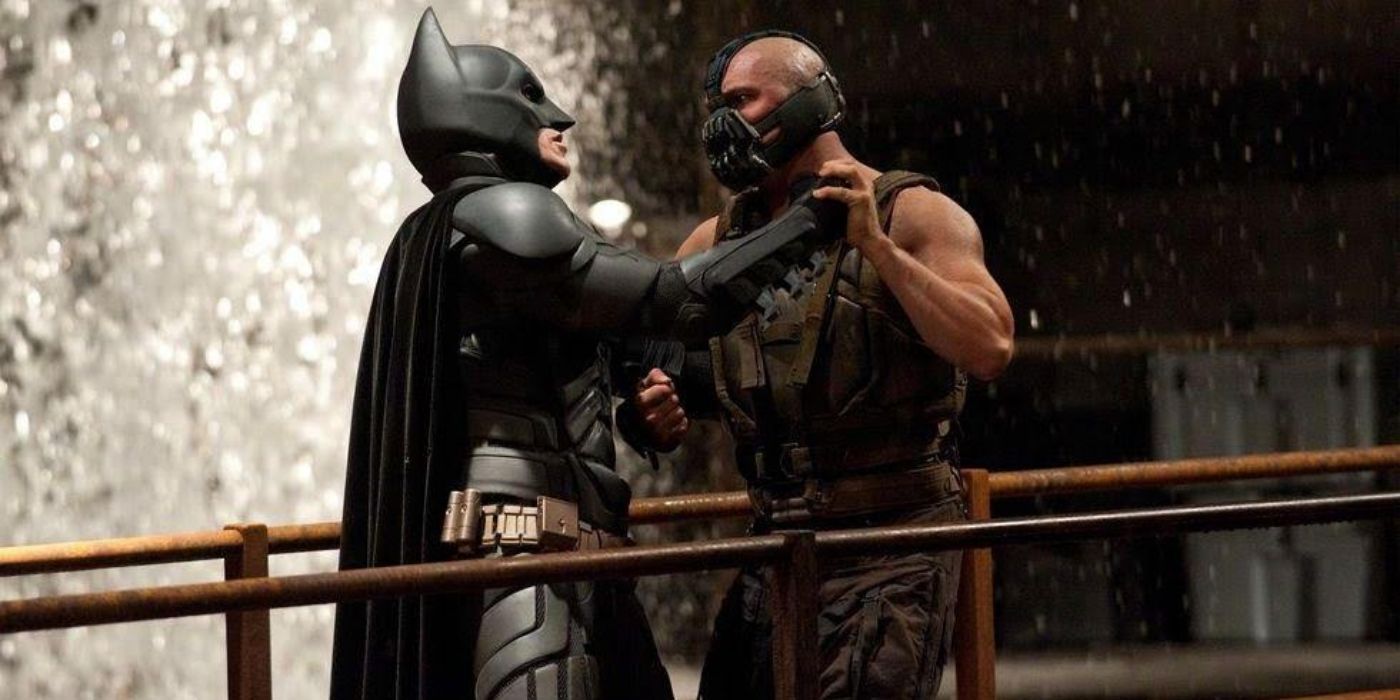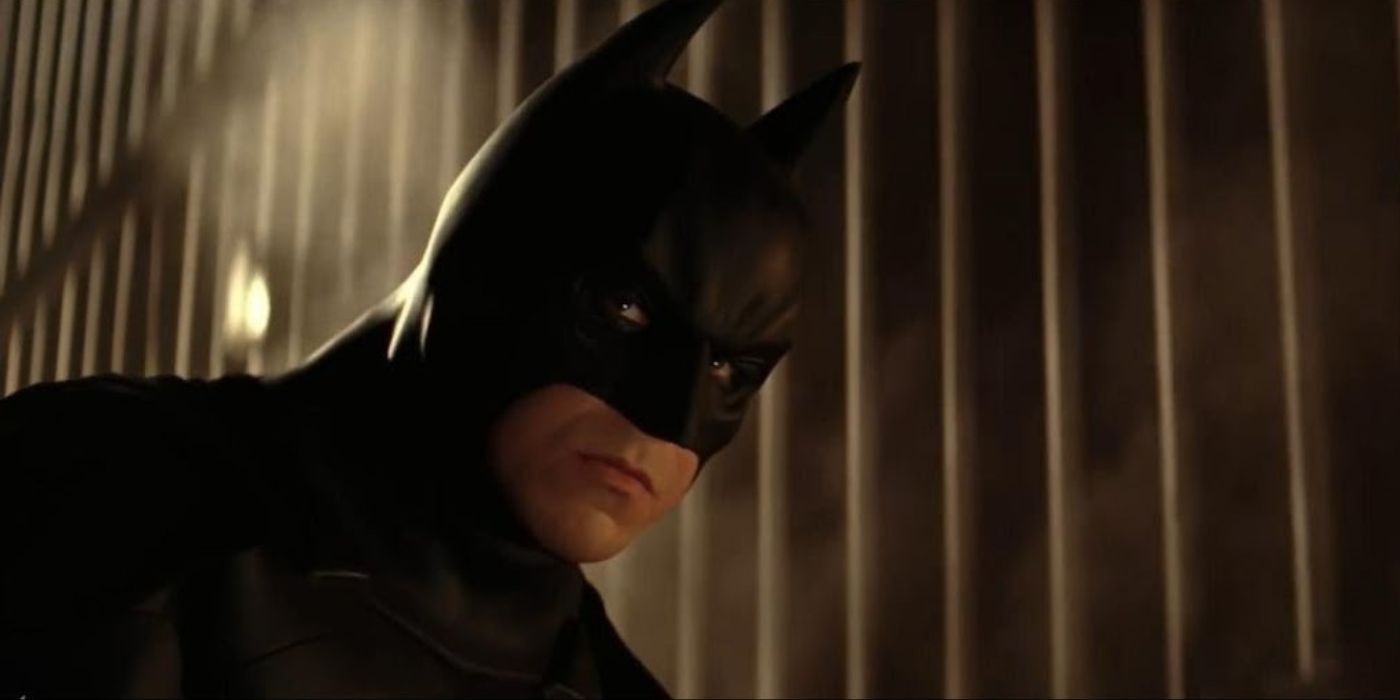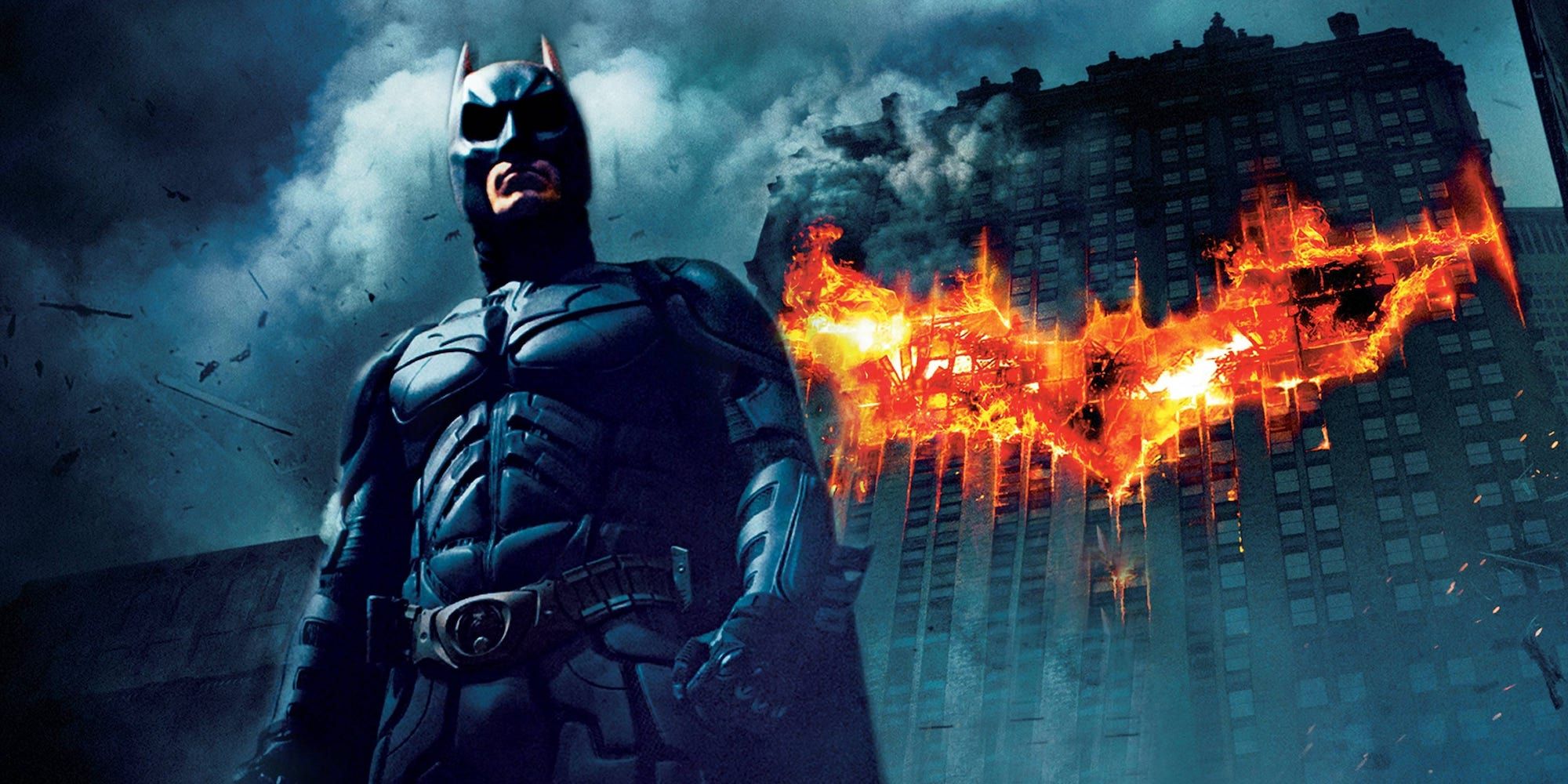All 3 Christopher Nolan ‘Dark Knight’ Movies
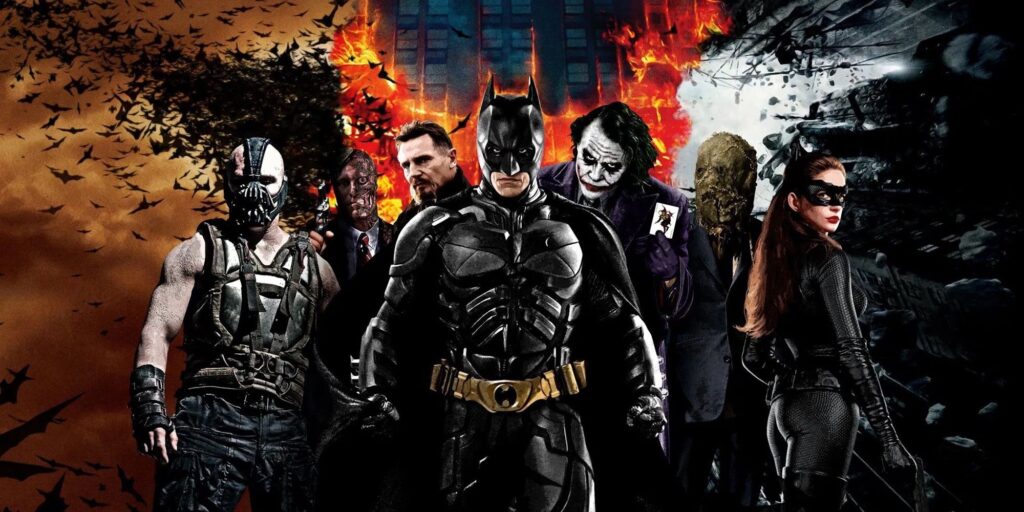
Christopher Nolan did the impossible with his trilogy of Batman films, as he managed to tell a complete and satisfying superhero story that both began and ended on its own terms. While both Tim Burton’s Batman series and Richard Donner’s Superman duology were handed off to other filmmakers before they could complete their trilogies, Nolan was able to deliver three successive films, each of which were met with tremendous critical acclaim and became box office juggernauts. Batman has notoriously been a character that has been hard to crack; Joel Schumacher’s films veered too hard into the campy side of the character, and Azck Snyder presented a cynical outlook that turned Bruce Wayne into a psychopathic murderer. Nolan was able to embrace the freedom of comic book storytelling, yet also told relevant stories that related to the cultural, economic, and political themes of the 21st century.
Nolan’s Batman trilogy are among the few films that can be considered to be both “mainstream blockbusters” and “prestige Oscar contenders,” an achievement that has only ever been accomplished by Peter Jackson’s work on The Lord of the Rings trilogy and Denis Villenueve’s involvement with the adaptation of Frank Herbert’s science fiction novel Dune. In addition to getting a great score from Hans Zimmer and perfecting the use of IMAX storytelling, Nolan got one of the greatest casts ever assembled for a superhero movie; Christian Bale proved himself to be the greatest Batman in history with his sensitive, emotional portrayal of Bruce Wayne. However, Michael Caine’s Alfred, Gary Oldman’s Commissioner Jim Gordon, and Morgan Freeman’s Lucius Fox also contributed to the franchise’s emotional prowess.
The Dark Knight trilogy continues to feel like an anomaly in modern Hollywood, as superhero films have begun to decline in quality. It no longer seems possible that a studio like Warner Brothers would grant creative freedom to a filmmaker like Nolan, who demands control over the story and tone of his work; Nolan has moved on to even bigger and better things, having won the Academy Awards for Best Picture and Best Director for his biographical masterpiece Oppenheimer. While it’s unlikely Nolan will ever return to the genre, The Dark Knight trilogy will stand the test of time as the best that the superhero era had to offer. Here is every The Dark Knight trilogy film, ranked from worst to best.
3
‘The Dark Knight Rises’ (2012)
Directed by Christopher Nolan
The Dark Knight Rises is still a pretty great movie, and the fact that it is at the bottom of the list is simply a reflection of how consistently excellent the franchise has been. The film was met with tremendous expectations based on the performance of its predecessor, but instead of making another mob-centric crime drama, Nolan crafted a Shakepserean epic that revolved around the battle for the soul of Gotham City. While Bruce believes that Gotham can be good, he is forced to once again believe in what Batman represents to people after he returns to the spotlight for the first time since he took the fall for the crimes committed by Harvey Dent (Aaron Eckhart).
Tom Hardy gives an amazing performance as Bane, that is both physically imposing and psychologically complex. Bane is an avid follower of the League of Shadows, and aims to both physically and emotionally break Batman beyond the point of repair; while some may argue that his plan is needlessly complicated, Bane’s goal is to watch Gotham City turn itself apart, and not simply to stage a massacre. The scenes with Bruce emerging from the cave are quite powerful, but they mean that Bane takes center stage for a majority of the second act, allowing Nolan to establish his unique physical rhetoric. The only true drawback is the way in which Bane’s backstory is revealed, as his connection with Talia Al’Ghul (Marion Cotillard) is another reveal that simply eats up time within a film that was already almost three hours long.
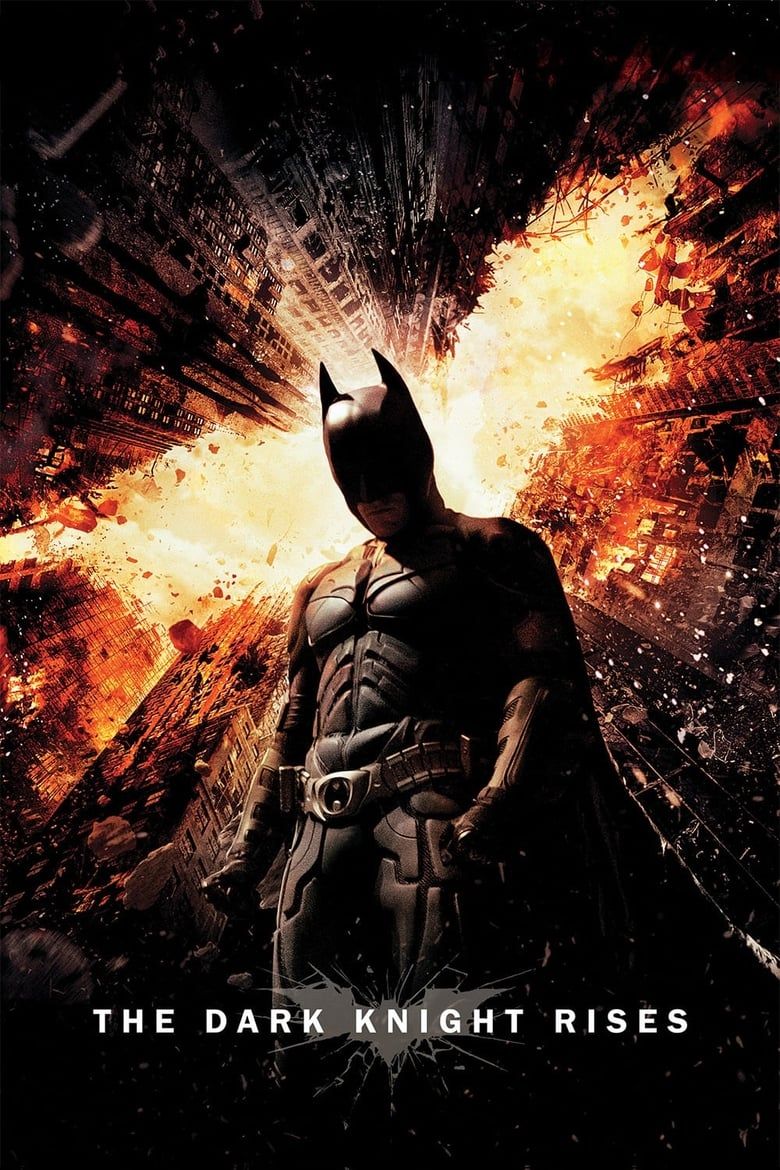
- Release Date
-
July 17, 2012
- Runtime
-
165 minutes
- Producers
-
Benjamin Melniker, Charles Roven, Emma Thomas, Kevin De La Noy, Michael Uslan
2
‘Batman Begins’ (2005)
Directed by Christopher Nolan
Batman Begins did what no Batman film had ever done before, as it actually provided an origin story about how Bruce became a superhero. Although it is understandable that filmmakers like Schumacher and Burton were interested in the amazing rogue’s gallery from the original DC comics, Nolan was able to show how Bruce’s childhood trauma shaped him into someone who would use any resources possible to prevent further tragedies from occurring. The training scenes are absolutely electrifying, as they offer a glimpse into how Bruce develops both his identity and his code of ethics. Batman Begins is not simply a revenge story about a masked vigilante beating the pulp out of criminals that are just in search of safety; it shows how Bruce learns about the irreparable harm of death, and how creating a symbol can bring hope to people who have lost their faith in institutions.
Nolan utilizes a brilliant non-linear structure to tie in various aspects of Bruce’s upbringing, showing how he came to distance himself from the wealthy establishment of Gotham City and the corrupt opportunists that took control of the Wayne Corporation. Nolan opted to take a more realistic approach to worldbuilding, as he showed how Dr. Jonathan Crane (Cillian Murphy in a scene-stealing, delightfully evil performance) was able to take advantage of a corrupted healthcare system in order to conduct a criminal conspiracy. Although it takes a good portion of the film until Bruce actually appears in the suit for the first time, his initial encounter with Carmine Falcone (Tom Wilkinson) is among the most satisfying moments in comic book history. The only real flaws that can be pointed out in Batman Begins is that the romance between Bruce and Rachel Dawes (Katie Holmes) doesn’t work, and feels like a needless tacked on moment to a film that already has many interesting supporting characters.
1
‘The Dark Knight’ (2008)
Directed by Christopher Nolan
The Dark Knight is one of the most important films in modern American film history, and helped to reshape what audiences thought that a superhero story could be. As one of the most critical post-9/11 action films, The Dark Knight examined how escalation leads to increased violence, and how conflicts are destined to be caught up in an endless cycle if both sides refuse to give up their morals. Although its a film that feels closer to a Michael Mann heist thriller than any of the other recent DC adaptations, Nolan outlined a perfect examination of the struggles that Batman was always doomed to face; since he will never kill the Joker (Heath Ledger), he will never fully be able to claim that his job is done. The only thing that continues to mobitate Bruce is that he still has faith that people are inherently good, as evidenced by the nail biting boat explosion sequence.
The Dark Knight will forever be tied to the legacy of Ledger’s Academy Award winning performance as the Joker, which instantly became one of the most beloved villains in cinematic history. It wasn’t just the fact that Ledger completely transformed himself physically to create a genuinely terrifying, psychopathic character; he was able to craft a complex antagonist whose motivations and backstory were always unclear. Even if the film points to various explanations for how the Joker came to be, what’s compelling is that he feels the need to turn Batman into a hypocrite and tear down any sense of hope that Gotham City can cling on to. At the same time, Ledger was able to bring out both the absurdity of an inherently silly character and stoke legitimate concerns about the rise in domestic terrorism. The fall of Dent is equally tragic, as Eckhart shows how easy it can be for good men to be so frustrated by having to play by the rules that they desperately stroke out on their own for the sake of achieving a personal sense of satisfactory justice.
The Dark Knight was a confrontational piece of political art, as it offered a rebuke of both the idealism of the Bush administration and the totalitarian power held by law enforcement. Although the film has weighty ideas about what America has turned into, it’s also a perfectly calculated action film that succeeded thanks to Nolan’s emphasis on practicality; the truck chase and Batman’s streetside encounter with the Joker are somehow more impressive than any of the CGI-ridden fight scenes in Avengers: Infinity War or Deadpool & Wolverine. Whether The Dark Knight is actually the best film that Nolan has ever made is an entirely different question, as many would point to either Inception or The Prestige as the most successful execution of a totally original vision. However, The Dark Knight was a film so seismic that it caused the Academy Awards to expand its Best Picture ballot, and proved that tentpole films that sold action figures could also invoke important ethical debates. It’s an all-time classic that has only gotten better in recent years.

